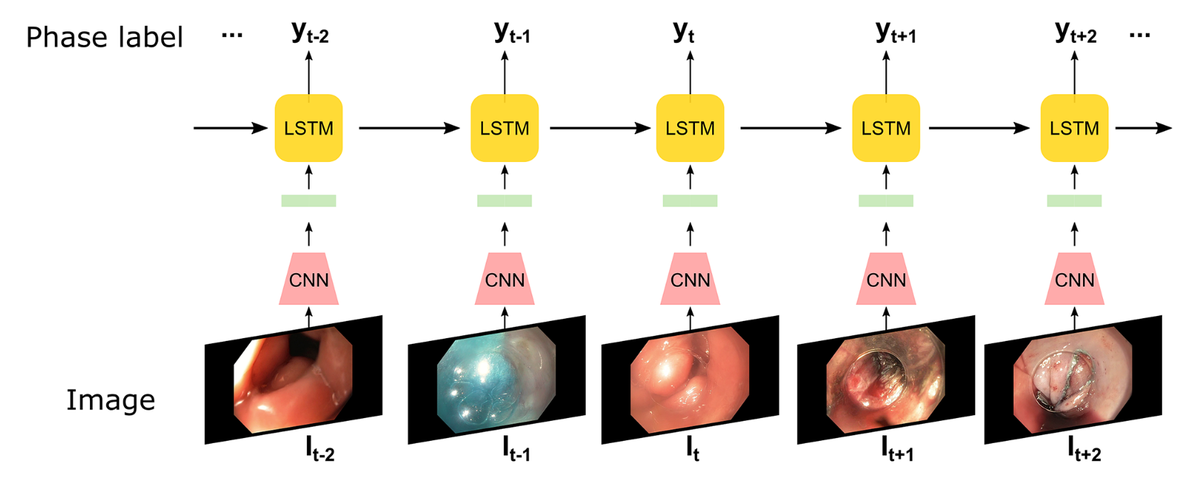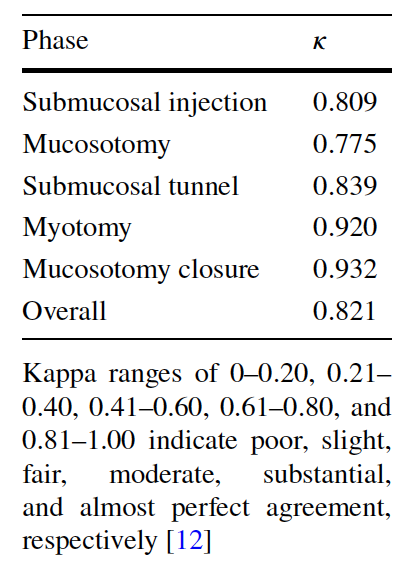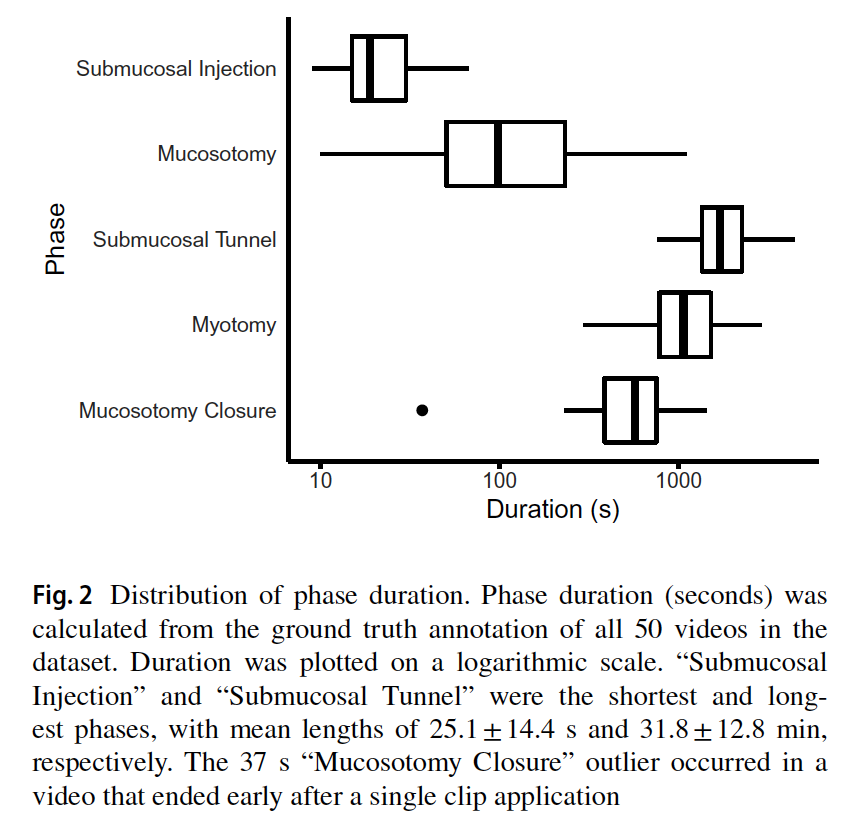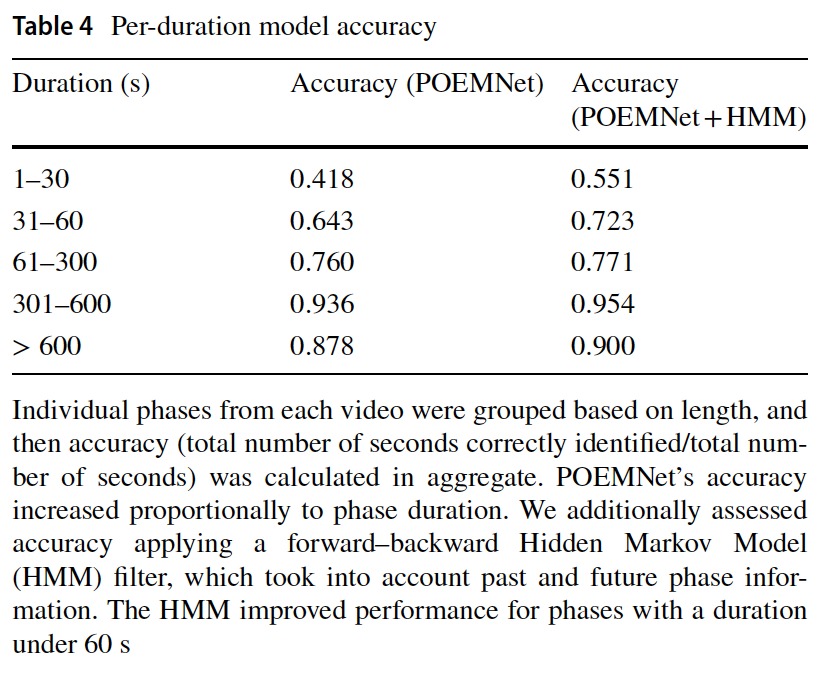Great work from @MGHSurgery @MGHSAIIL @thomas_m_ward on automated phase recognition in #endoscopicsurgery #POEM. A few important findings in this paper that I think are worth highlighting! 1/ https://twitter.com/MGHSAIIL/status/1288203635688497152
As in our prior work in sleeve gastrectomy (see @AnnalsofSurgery https://journals.lww.com/annalsofsurgery/fulltext/2019/09000/Computer_Vision_Analysis_of_Intraoperative_Video_.3.aspx) we used combo of ResNet & LSTM as visual+temporal models 2/
We had multiple annotators operating under annotation training to try to really converge upon a shared conceptualization of start/stop of phases to ensure high quality labels. Most phases w/ almost perfect agreement b/w annotators 3/
I think most important thing here is we looked at differences in operative phase duration. Why? Well short phases are less represented in the data than long phases. Longer phase = more frames = class imbalance. Need to know what your data is like 4/
Overall performance was good (both weighted & unweighted based on prevalence of frames) but Table 3 highlights how performance on short phases may affect overall performance 5/
This is obvious to #AI researchers but bears highlighting for surgeons reading AI papers that may tout super high accuracy -- performance differences across phase duration. Not surprisingly, longer phases perform better
6/
6/
When reading other papers with high accuracy, think if the phases identified are clinically meaningful & realistic or if they are arbitrary long phases that boost reported performance!
For more, tagging in @mghsaiil's @thomas_m_ward 7/
For more, tagging in @mghsaiil's @thomas_m_ward 7/

 Read on Twitter
Read on Twitter






